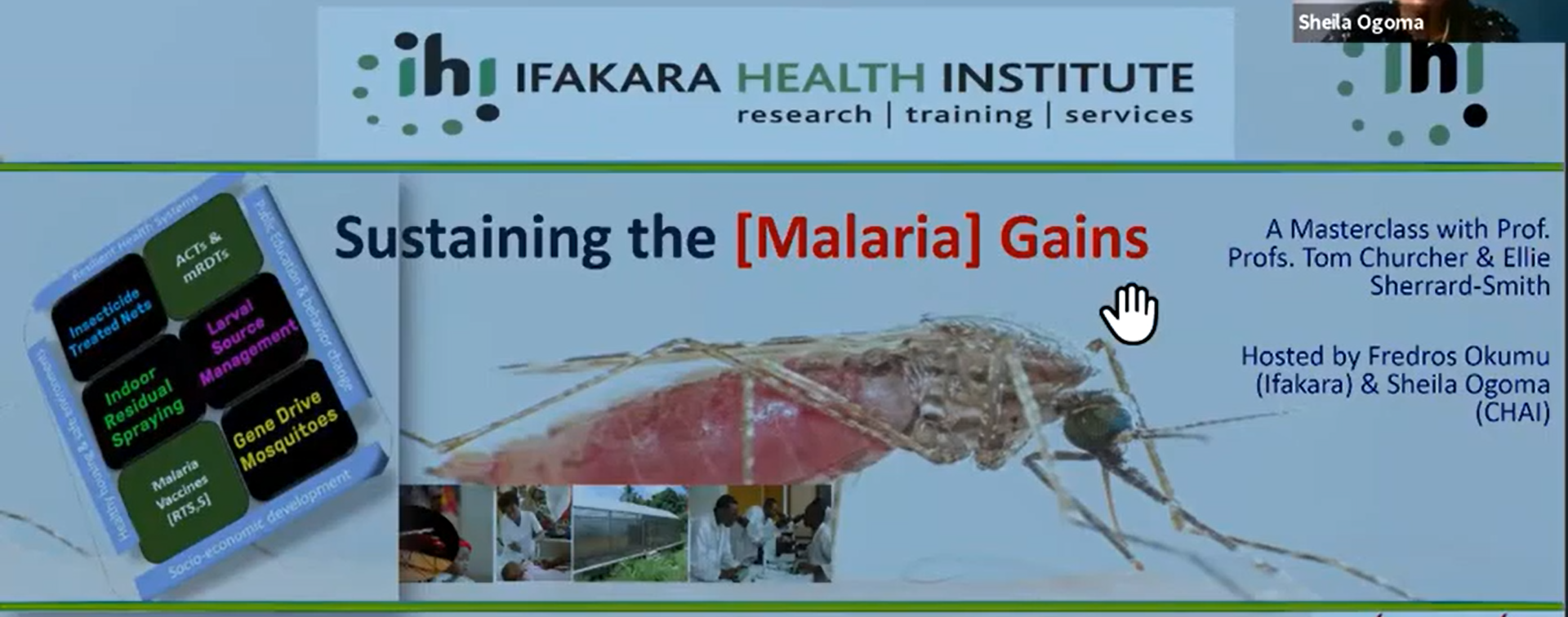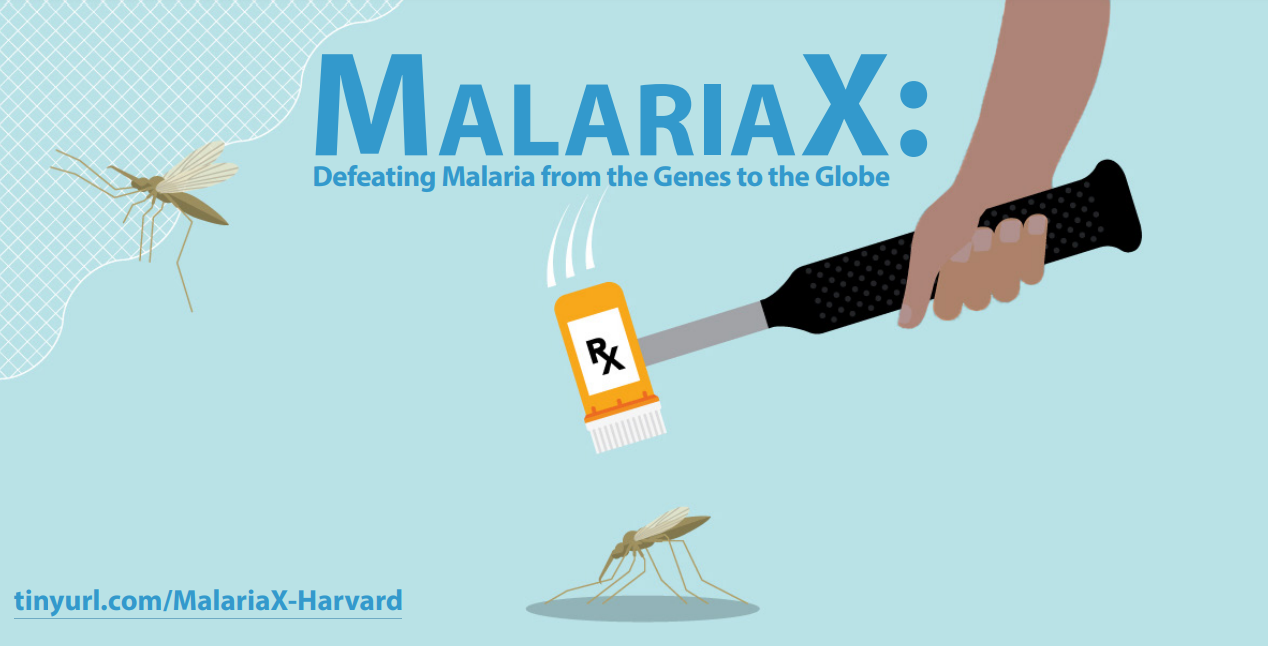Science of Eradication: Malaria 2019
Collaborator(s): Barcelona Institute for Global Health (ISGlobal), Spain; Swiss Tropical and Public Health Institute (Swiss TPH), Switzerland; Harvard T.H. Chan School of Public Health (HSPH), United States
Countries: Spain
Published: 25/06/2019
Malaria: Collaborating to succeed
Mary Mael and Maria Tusell*
Participants in the Science of Eradication: Malaria course shared a sense of optimism and agreed on the need for leadership and data-driven decision-making in the fight against this disease
“Collaboration” was probably the word most heard when asking the participants of the 8th edition of the Science of Eradication: Malaria course how they thought the fight against malaria could be improved. Even though progress has stalled, as highlighted by the head of the Global Malaria Programme, Pedro Alonso, in the opening lecture, participants left Barcelona with a shared feeling of optimism and a perception that with commitment, a multidisciplinary approach to the disease and data-driven decisions; malaria control, elimination and eradication are indeed achievable goals.
Organized by the Barcelona Institute for Global Health (ISGlobal), the Harvard University and the Swiss Tropical and Public Health Institute (Swiss TPH), the course gathered more than 50 participants from 24 different countries for one week, in order to discuss the innovation and actions needed for long-term success against malaria.
A wide range of topics were discussed, from the basic biology and the tools against malaria that already exist or are likely to become available soon, to the importance of taking into consideration the financing issues or the community and political engagement.
The course took off with an overview of the parasite and vector biology, followed by different sessions on the latest advancements in diagnostics, genetic tools for malaria and drugs, before leaving the floor to other aspects of the malaria strategies: “There are still many challenges that may hinder the progress, challenges regarding the biology of the vector, the biology of the parasite, insecticide, and drug resistance. But there are also financing issues, and the fact that every country has a different political commitment, so the effort should be mainly country-specific”, explained one of the course participants, Samira Al-Eryani, Technical Officer at the WHO Regional Office for the Eastern Mediterranean.
The importance of a data-driven approach when it comes to decision-making and implementation was a key topic throughout the week. “For me, what is key is sharing the scientific knowledge with the implementers and programme managers to see how best we can review some of our strategies and re-align them with the new data that is coming”, said participant Horace Cox, Director of Vector-borne diseases at the Ministry of Health in Guyana.
Innovation was also a recurrent subject. As highlighted by another student, Derric Nimmo, Senior Technical Manager at the Innovative Vector Control Consortium (IVCC), “what I’ve got out of this course is that we can succeed, but we have to keep pushing and keep innovating as well.”
The course broadened the students’ perceptions and enabled them to see the fight against malaria from different perspectives. The need for engagement, both at the political and community levels, raised vivid and lively discussions: “We always need to apply politics. I really enjoyed the sessions on these topics because they helped me contextualize what I need for my own and unique situation”, said Ify Aniebo, a senior researcher at the Health Strategy and Delivery Foundation in Nigeria, before adding: “I am very optimistic. I think malaria elimination can be achieved, but I also think there have to be a lot of strategic plans. Some African countries are already doing better than others, so this fight has to be country-owned and most importantly, it has to be multifactorial.”
Qutbuddin Kakar, officer at the WHO office in Pakistan, agreed on the importance of empowering countries: “We are now building up the capacity of the countries. Without strong teams at country levels, we can’t progress”. From her side, Allison Tatarsky, Associate Director for Vector Control at the Malaria Elimination Initiative at the University of California San Francisco (UCSF), emphasized the pivotal role of leadership: “We can have new tools, we can innovate, we can always do better… But I think without leadership, we’re not going to achieve success.”
These leaders need to understand what it takes to transition from malaria control in the highest burden areas to eliminating malaria and, in the long term, eradicating it. As put by Marie Onyamboko, Professor at the Kinshasa School of Public Health in the Democratic Republic of Congo, “before the course, I saw malaria control, elimination and eradication as different phases, and this is what I was teaching to my students. Now I have a new approach: we have to think of this as a continuous process”.
The need for a multisectoral approach was a hot topic during the entire course week. “We need to work together. Malaria control, elimination and eradication are going to be not only the tasks of a single program or researchers, but it will all be about integration with other fields as well”, said Fitsum Tadesse, researcher at the Armauer Hansen Research Institute in Ethiopia. Ally Olotu, researcher at the Ifakara Health Institute in Tanzania, praised the course for giving “a broad understanding of the importance of different sectors coming together to make an impact. Defeating malaria is definitely something possible, but requires a lot of work, coordination and dedication”.
After more than 30 sessions led by 33 experts from a variety of disciplines, most participants were convinced that malaria elimination will require imagination and commitment. Optimism was the common feeling when the course came to its end. “It all seems very complicated, we are all facing lots of challenges with finance dropping, resistance growing, etc., but we would not have imagined 15 years ago that we would be where we are now. We should remain optimistic”, said Ana Alvarez Nieto, Programme Manager at Unitaid. “As long as conversations and actions keep going on, I think we can eliminate. It is going to take a long time, a lot of work, and definitely a lot of money but I personally think it’s possible”, added Ify Aniebo, while Svetlana Ryazanskaya, Project Manager at IVCC concluded: “Genuinely, I think malaria is going to be a total success. We have a group of brilliant minds, people with the same aim, very driven and incredibly passionate, so there is no way we are going to fail”.
*Barcelona Institute for Global Health (ISGlobal) and MESA Alliance.
This blog was developed by the MESA Correspondents Program of the Malaria Eradication Scientific Alliance (MESA). It is cross-posted on Malaria World.
Published: 25/06/2019



